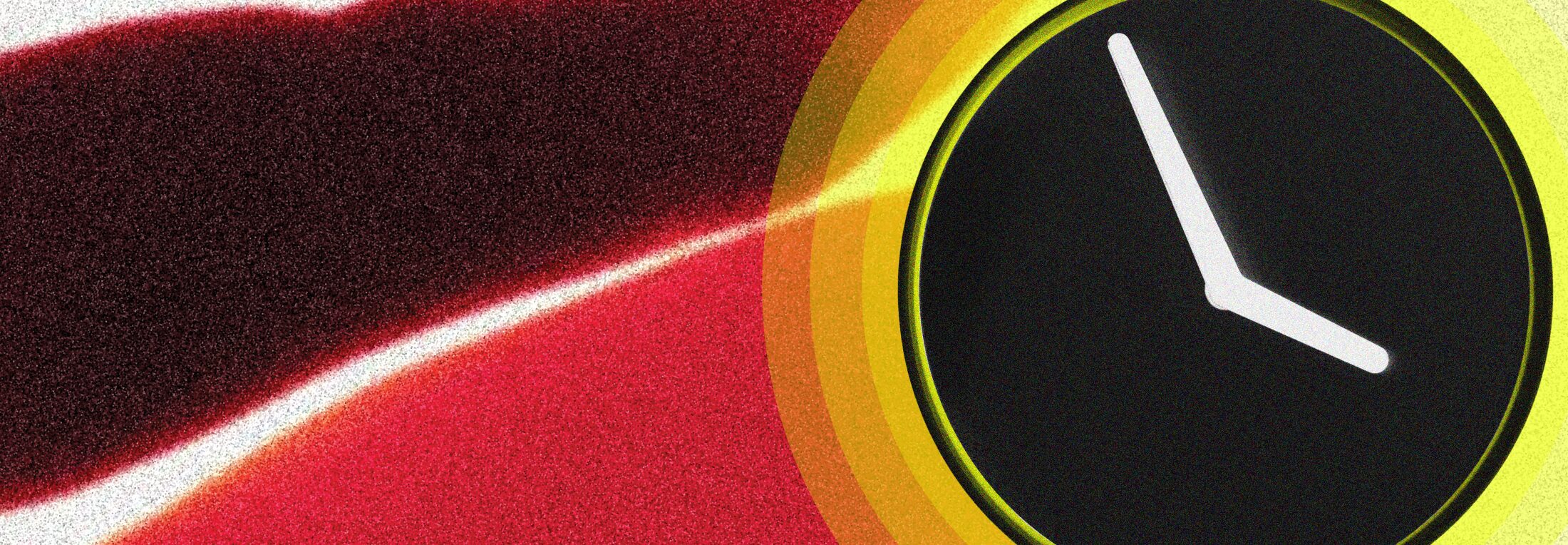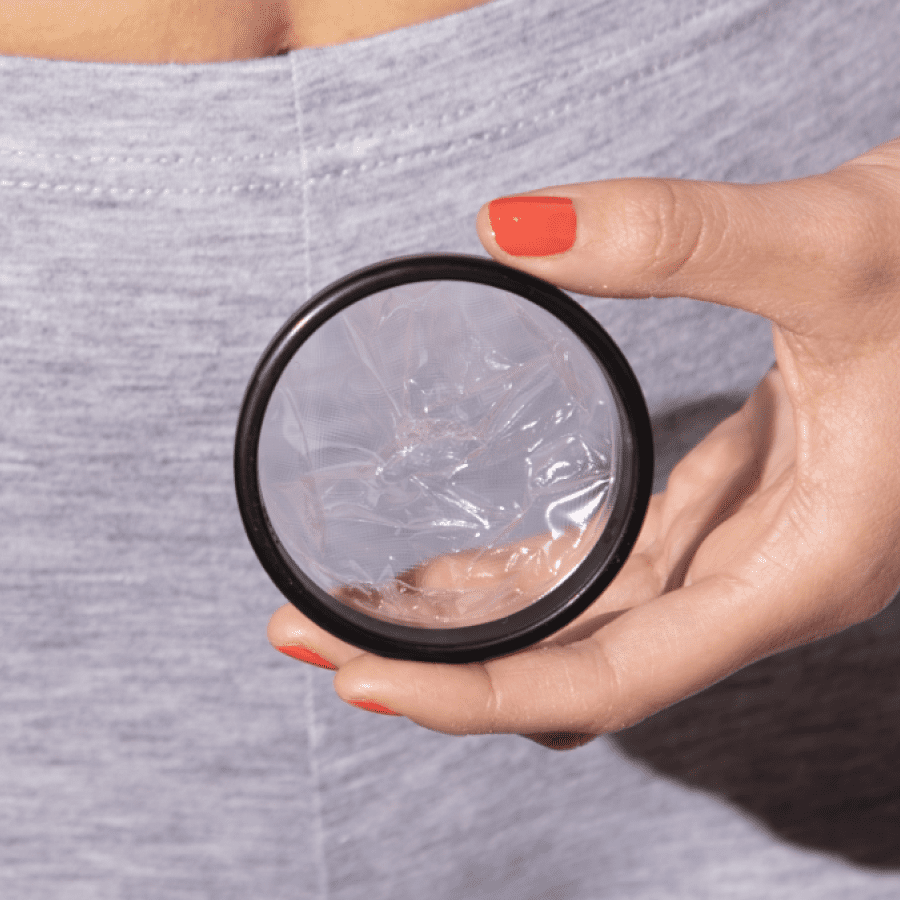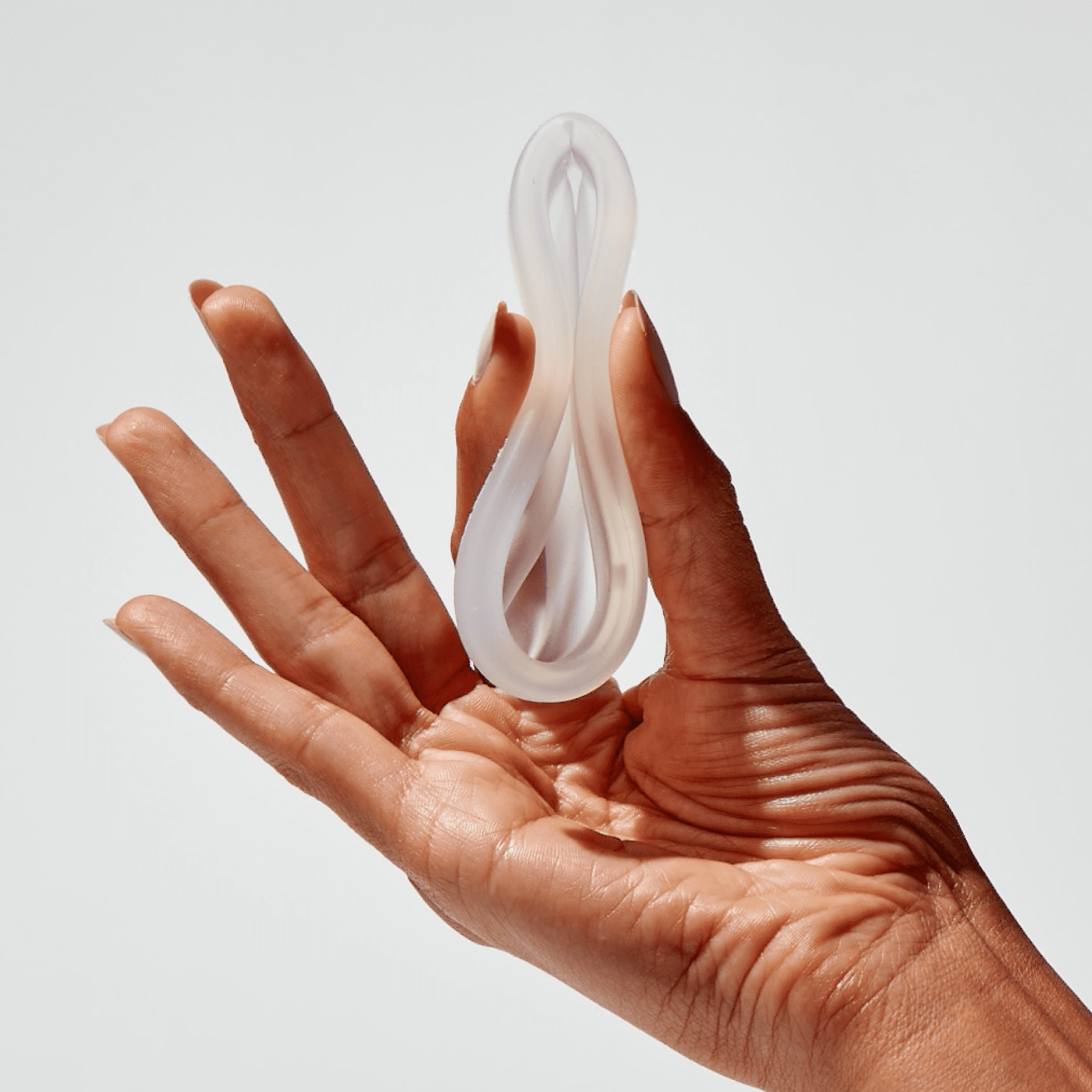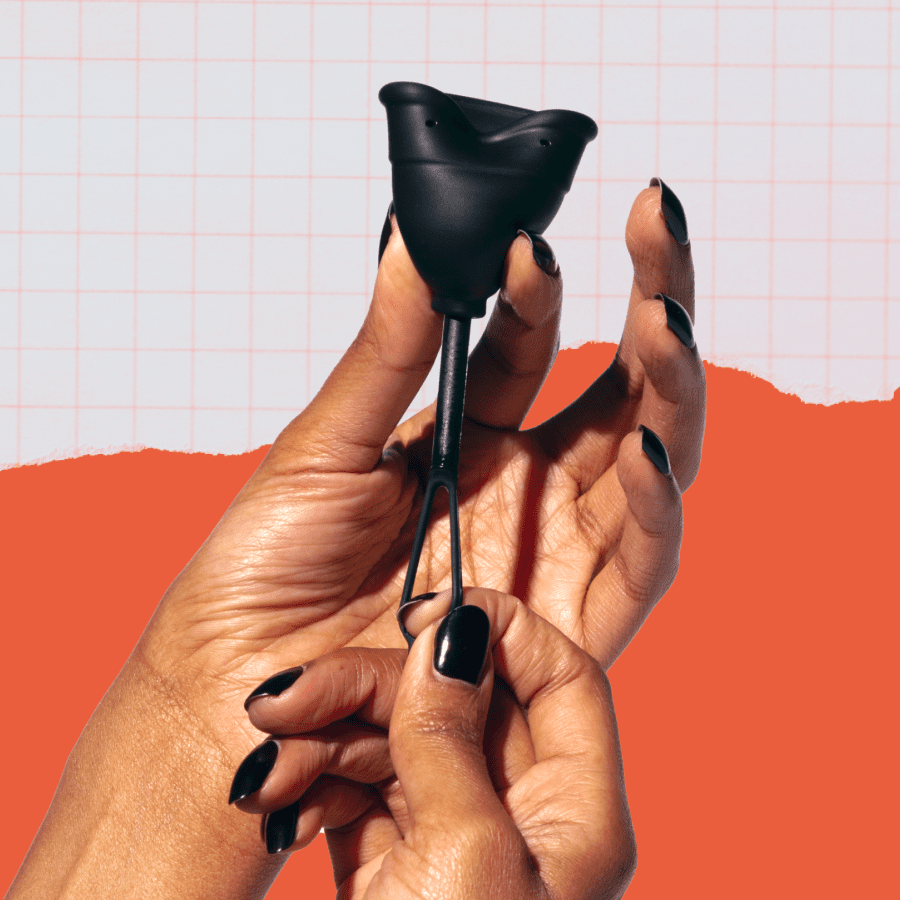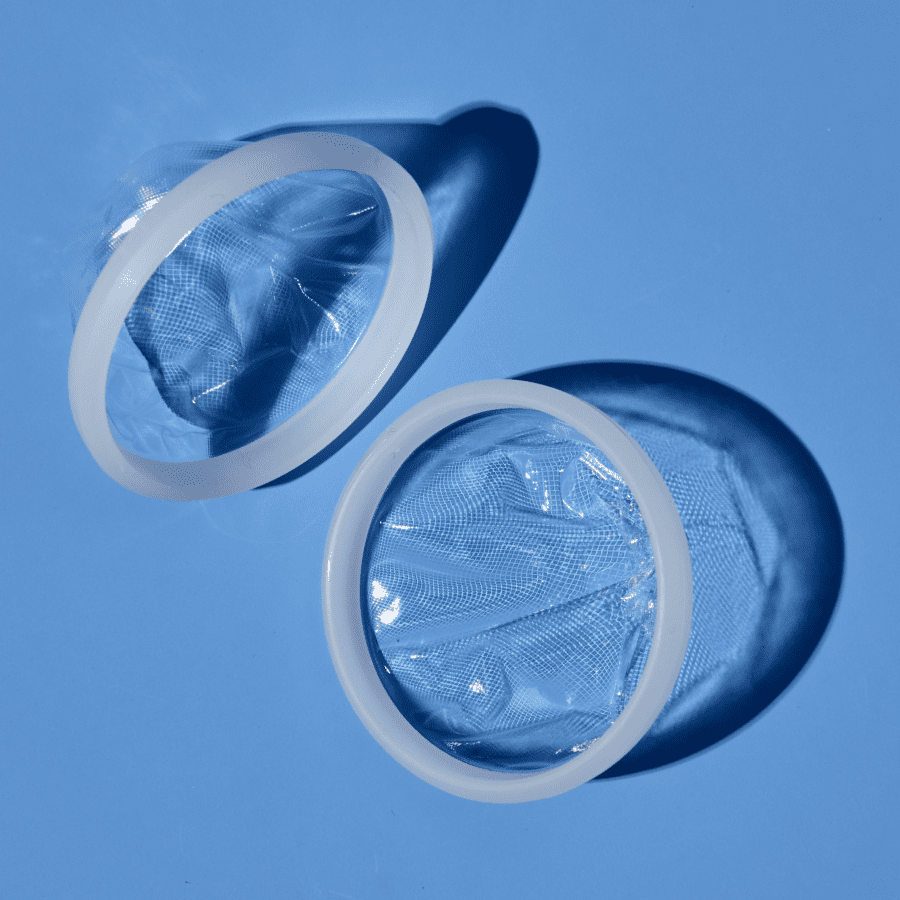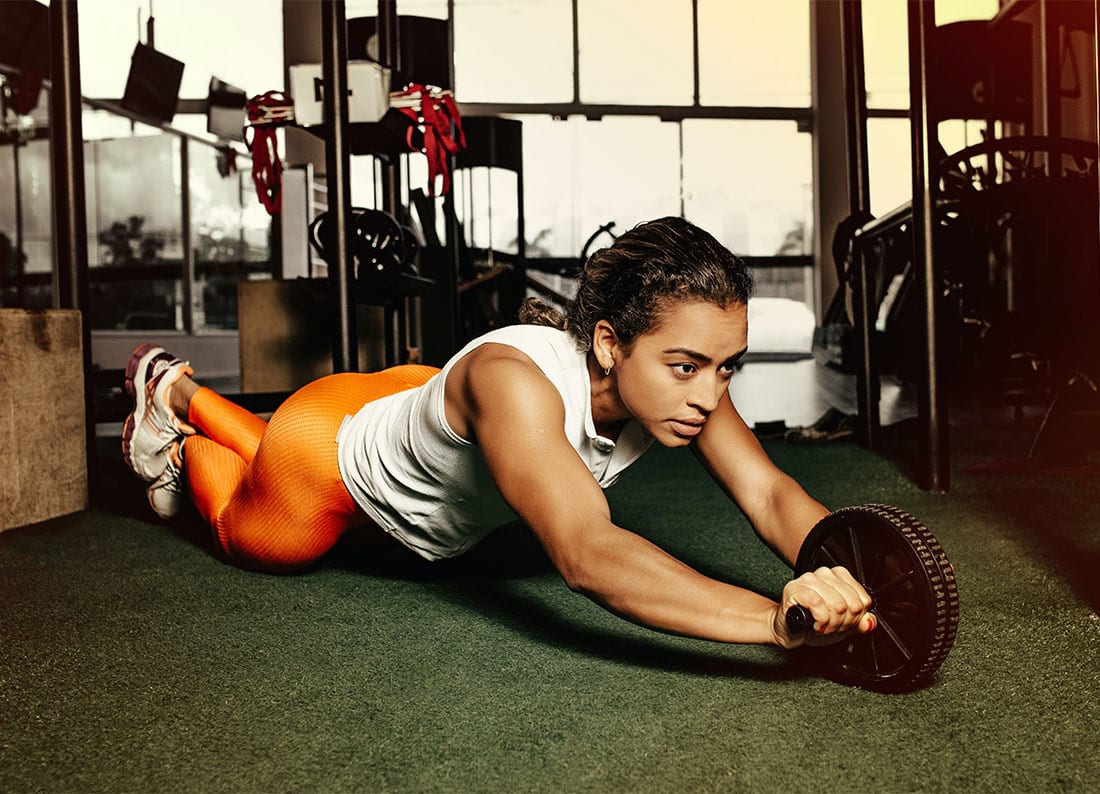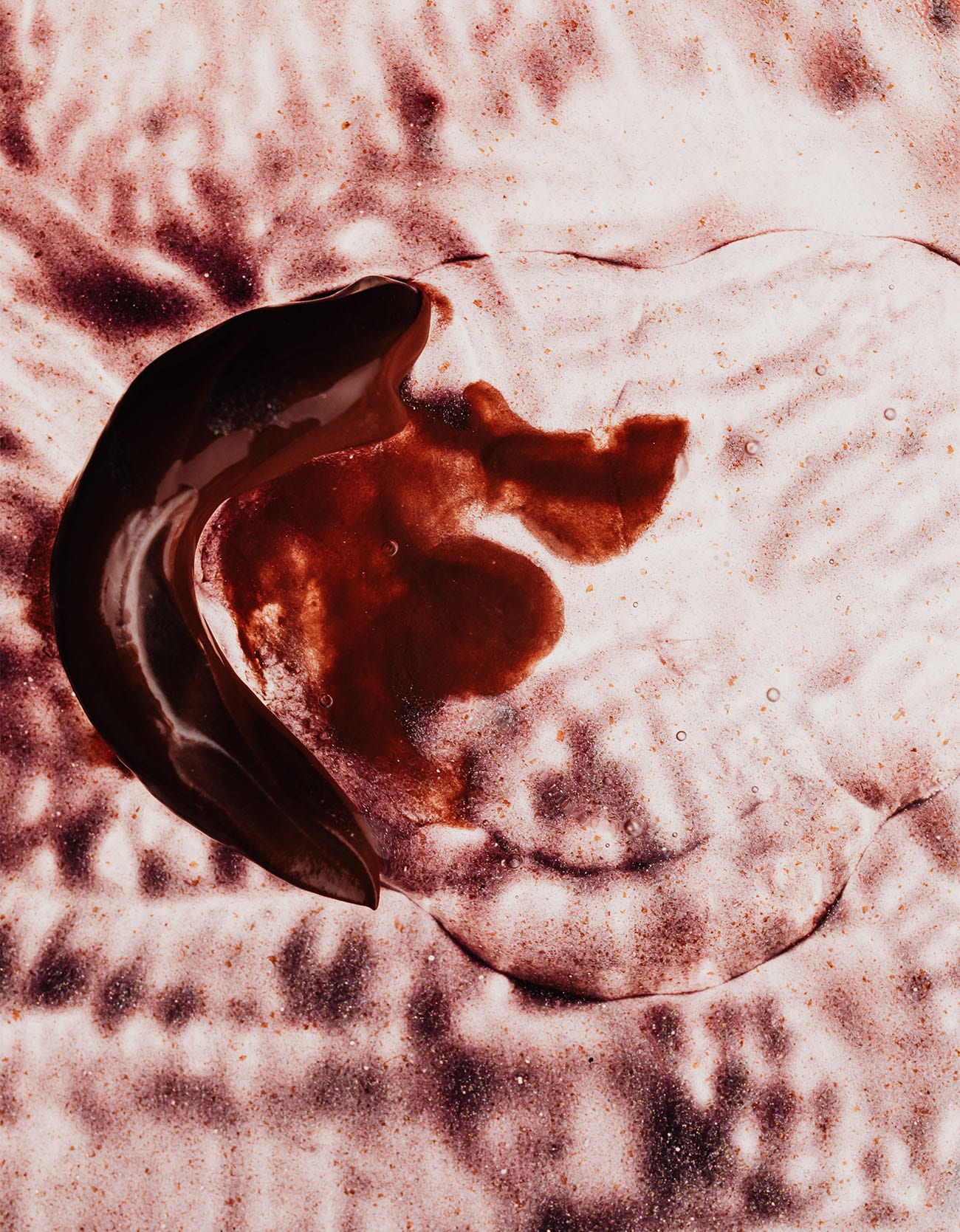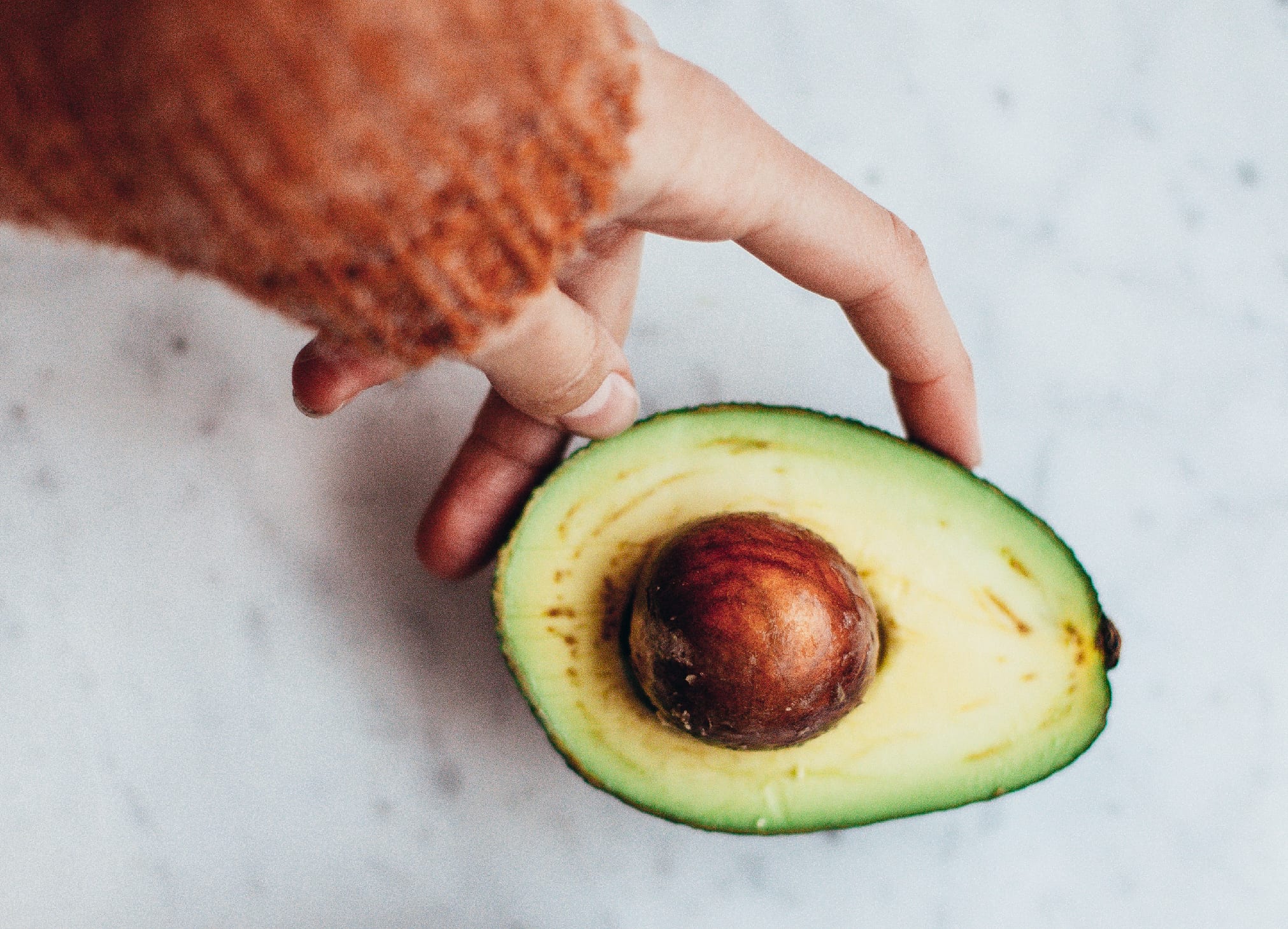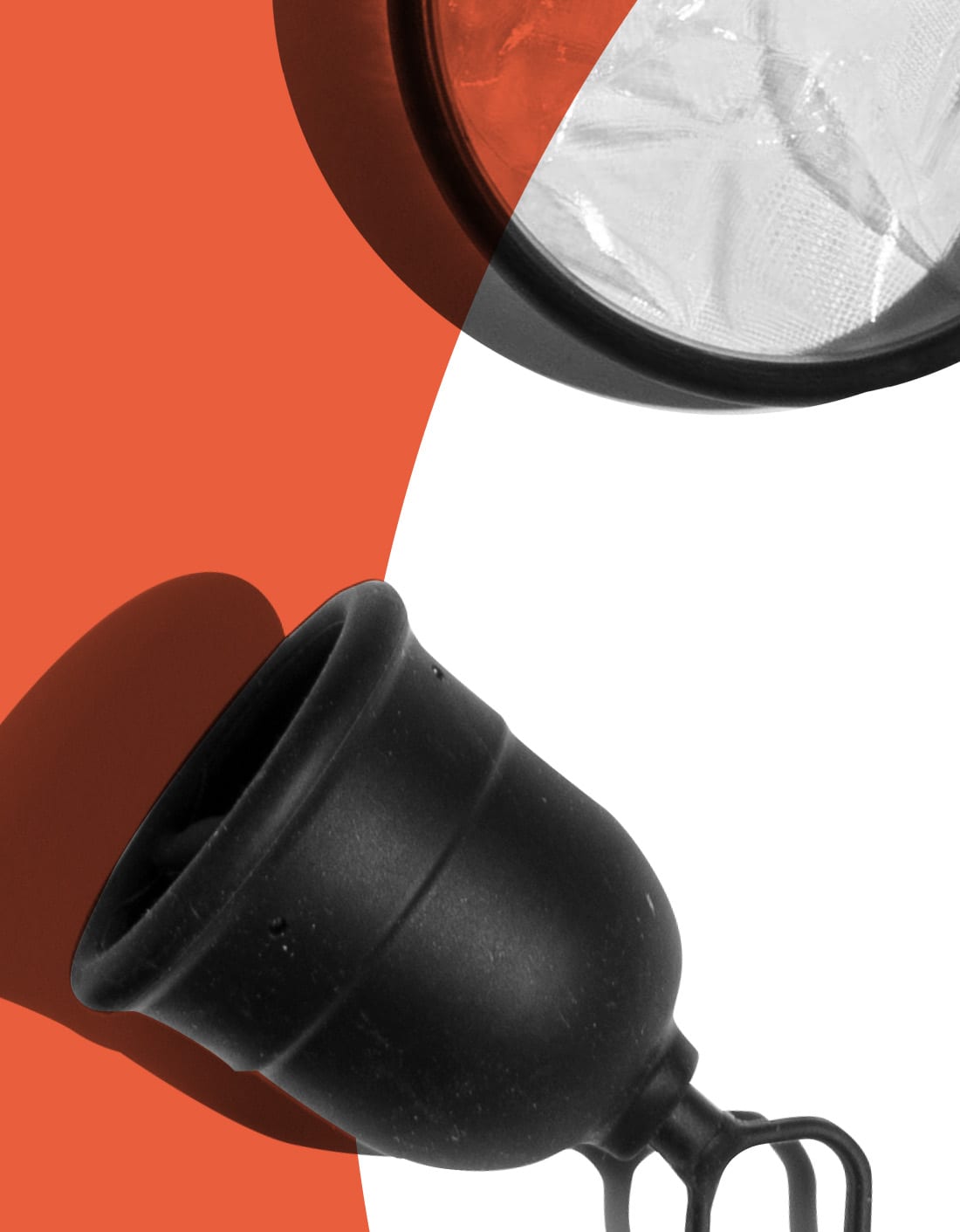How to safely reduce the length of your period
TL;DR: Studies show that hormonal birth control is the most effective way to control your period. However, if you need to kick bleeding to the curb ASAP, you can also try exercising, having an orgasm, taking some Advil, or incorporating herbs like fennel and ginger into your diet.
Behold the mighty interrupter of romantic beach baecations and cute white outfits: The Ill-Timed Period. Even if your period isn’t killing the vibe at major life events, it might just be extra heavy and uncomfortable. Chocolate and a heating pad can only do so much.
If you’re here because you’re wondering how to make your period end faster, there are a few scientifically proven and science-ish-yet-widespread ways. Yup, you heard that right. And we’re talking simple, quick hacks—not crazy multi-step strategies, weird diets, or prayers to an ancient goddess.
Read on to learn how to end your period faster so you can enjoy that date night, wedding, or concert menstruation-free.
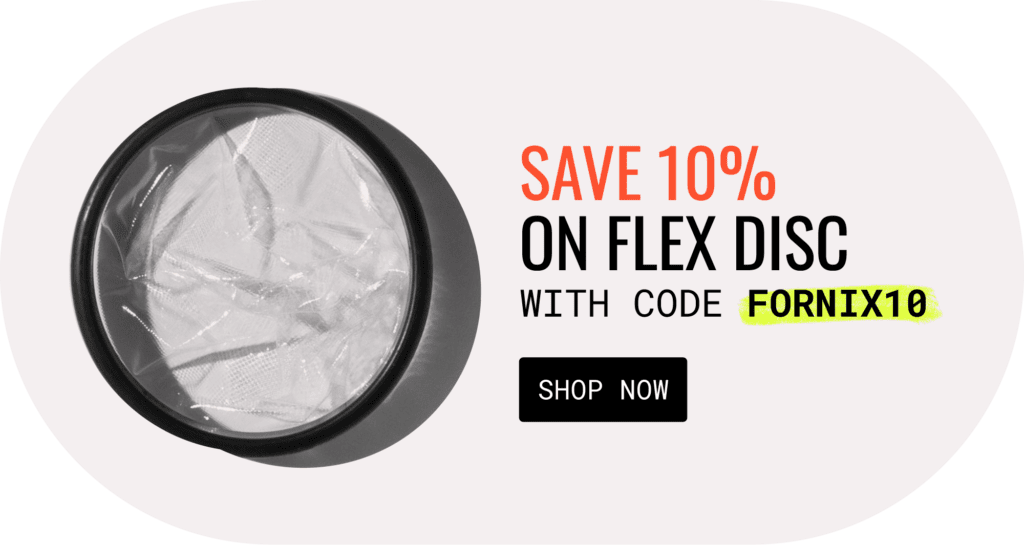
How to speed up your period: A few scientifically proven ways
Can I really push my period out faster? Believe it or not, a few studies have found that stopping or delaying your period is totally possible. However, not all of these methods are suitable for everyone. Speak with your doctor or OB-GYN if you have any concerns about the length of your period or if it’s suddenly become a crazy heavy flow.
Caveats aside, here are a few scientifically proven ways to shorten your period:
Sweat it out
Physical exercise may not only make your period less painful. Exercise can also decrease your period length by about a quarter of a day, according to a study published in medical journal Epidemiology.1 Cardiovascular exercise, in particular, has been shown to reduce painful cramps and may help uterine blood exit the body a little faster. 2
Exercise also reduces excess water content in your body, which helps with bloating, that oh-so-fun reason you hate wearing jeans during your period. Full-body workouts improve circulation and blood flow over time, especially if you keep your exercise routine regular. Several studies have shown that exercise reduces PMS symptoms and makes your period a little less uncomfortable, no matter what routine you choose.3
Endorphins are helpful, too: Their natural pain-killing effect can even decrease period cramp discomfort.4 Moderate-intensity exercise is the best way to ride that endorphin high. Go for a low-key, 30-minute jog, hike, swim some laps, hop on a spin bike for an easy ride.
Aim to work out for at least 30 minutes per day to maximize endorphin production, but don’t overdo it. Listen to your body and take a break if the activity you’re doing is making menstrual pain worse.
Hormonal birth control FTW
Studies have shown that hormonal contraception methods are perhaps the most reliable way to change or control the menstrual cycle – including the average duration of your period.5 The combined contraceptive pill, for example, controls the menstrual cycle by impacting hormone levels and “tricking” your body into thinking you’re already pregnant (thus, no menstruation).
Most combined hormonal birth control pill packs include 3 – 3.5 weeks of “active” pills and 4 – 7 days of placebo pills with no active ingredients (the placebo week). When taking the placebo pills, most individuals will get a period (a.k.a. breakthrough bleeding) as the hormone levels in their body shift.
Avoiding breakthrough bleeding
In most cases, however, the week of placebo pills can be skipped. So, rather than taking the placebo pills at the end of the pack, you grab a new pack and stay on the active pills.6By avoiding the placebo pills, the level of hormones stay consistent and you avoid breakthrough bleeding (a.k.a. menstrual suppression, skipping periods, etc).

For most individuals, it’s totally safe to skip placebo pills – but make sure to check with your healthcare provider. Also, keep in mind that there are many different birth control methods and types of hormonal contraceptive pills. Some pills are designed so that breakthrough bleeding is avoided altogether! Other forms of birth control pills change hormone levels throughout the month; for these, it’s best to have a longer chat with your provider to go over your medical history and have a medical evaluation before you make changes.
There are other forms of hormonal birth control, like the Depo-Provera shot, a hormonal intrauterine device (IUDs) with Progestin, and Nuvaring vaginal ring, that may stop your period completely.7 If you’re thinking about switching up your contraceptive method to hormonal IUDs, do some research first and have a convo with your doctor or OB-GYN. You may have to test out a few options before you find one that effectively lightens or shortens your period.
NSAIDs – But proceed with caution
Non-steroidal anti-inflammatory drugs like good ol’ Advil, Motrin, or Aleve can actually lend a hand in pushing out your period faster. Why? Because NSAIDs reduce the production of prostaglandins, the chemicals that trigger uterine muscle contractions during your period
Taking NSAIDs will often result in a lighter flow with less pain. This is great news for when the stars (fail to) align, and you have your period during that beach vacation you’ve been planning forever, or any other important event you have planned.
Turns out, NSAIDs do more than just ease pain. There is some evidence that, at extremely high doses, NSAIDs can even delay your period for a day or two or make it end sooner than usual.8
Before you run to the medicine cabinet, keep in mind that stopping your period would require a much higher dose of NSAIDs than is recommended on the bottle. About 800 milligrams of ibuprofen, every six hours, or 500 milligrams of naproxen, three times a day.8NSAIDs can have harmful side effects on your overall health and can be toxic to your liver and kidney at high levels. Many physicians recommend against using these meds as a menstruation shortener.

If you want your period to end because of god-awful menstrual cramps, NSAIDs can be very effective against those pesky period symptoms when taken at their recommended dosage. Studies have shown that these drugs are effective for dysmenorrhea because they inhibit cyclooxygenase enzymes, which make prostaglandins. They also reduce the volume of menstrual bleeding (hello, lighter periods!) – plus, they may have an analgesic (fancy word for pain-relieving) effect on the central nervous system.9
Bottom line, always make sure you’re within daily limits for any meds you’re on. Whether they’re OTC or prescribed, ask your doc if you have any questions. But in general, NSAIDs = helpful for cramps and flow. Note: Tylenol (acetaminophen) is NOT an NSAID, so stick with ibuprofen or naproxen.
Not-so-scientifically-proven options that might shorten your menstrual period
Alright, enough with the studies. If you’re wondering how to make your period end faster naturally and are willing to try anything at all, have a go at some of these (purely hypothetical) methods.
Have an orgasm
Having an orgasm, whether through sex or masturbation, isn’t just a good idea in general—it could potentially reduce the duration of bleeding.10 An orgasm is pretty similar to the muscle contractions in the uterus that dispel menstrual blood. Orgasms also release endorphins, which can help alleviate menstrual cramps and improve your overall mood.
Even though there isn’t much scientific research to back this up, it doesn’t hurt to try! Say a quick prayer to the menstruation goddesses, break out that vibrator, and see what happens. To avoid a mess, pop in a Flex Disc™ just before penetrative sex (or dildo play). It’s basically a win-win.
Vitamin C
Good news! Vitamin C isn’t just good for colds. There is some indication that this water-soluble vitamin can potentially increase progesterone levels. This helps break down your uterine lining more quickly, potentially shortening your period.11
Its immune-boosting benefits can’t hurt, especially if you’re already stressed. Buy it as a dietary supplement in capsule, gummy, or powder form or consume it naturally in citrus fruits, strawberries, bell peppers, or broccoli.
Herbal remedies
Whether you enjoy them in a supplement, tea, or tossed right in your favorite homemade soup, herbs are great for supporting your wellness in general. Some of them may even shorten your period. Fennel (Foeniculum vulgare), for one, has analgesic and anti-inflammatory properties that can decrease the length of menstruation.12
Chamomile (Matricaria chamomilla) may also decrease your average amount of bleeding per cycle. Chamomile also has soothing, sleep-inducing qualities that can help you catch some Zs.13Some practitioners have also recommended ginger (Zingiber Officinale) to reduce heavy bleeding (as long as it is your menstruation).14
Lastly, raspberry leaf can help with menstrual cramps and hormone balance. Although it is less likely to shorten your period, it can make it more bearable.
Avoid using tampons
Tampons soak up period blood while sitting in the vaginal canal, rather than collecting it. This absorbing action may interfere with your flow, making your period feel as though it lasts longer than it should.
Additionally, tampons are linked to increased cramping and discomfort for some individuals. They’ve been also linked to toxic shock syndrome (TSS), a rare but serious bacterial infection. If you’re looking to make your period end faster, it might be worth considering alternative menstrual products.
A menstrual cup or disc, on the other hand, relies on gravity to catch menstrual blood. Some believe this “free bleeding” effect makes your period move quicker. Plus, with a cup or disc, you won’t have to take trips to the restroom as frequently for a change.
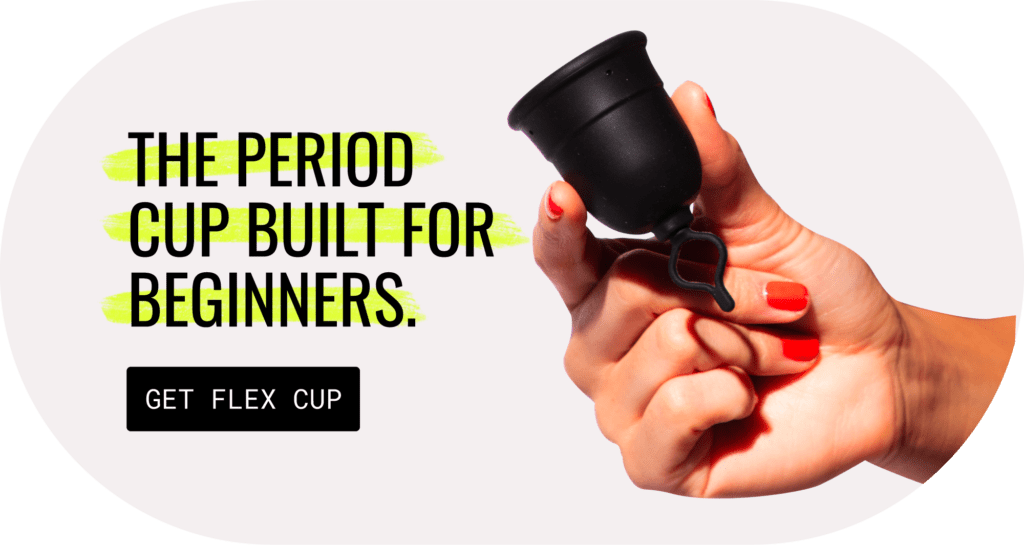
Are there any foods or drinks that can help to reduce the length of your period?
While there is no scientific evidence to suggest that specific foods or drinks can make your period end faster, maintaining a healthy diet and staying hydrated can support overall menstrual health. Foods rich in iron, like leafy greens and lean meats, may help to reduce symptoms like fatigue and cramps.
Recommended foods
Some foods that are recommended to support a healthy menstrual cycle include:
- Fatty Fish: Rich in omega-3 fatty acids, fish like salmon and sardines can help reduce inflammation and alleviate menstrual pain.
- Leafy Greens: Spinach, kale, and other leafy greens are packed with iron, which is important for replenishing blood during menstruation. They also contain fiber and antioxidants that promote hormonal balance.
- Nuts and Seeds: Almonds, walnuts, flaxseeds, and chia seeds are excellent sources of essential nutrients like magnesium, calcium, and omega-3 fatty acids
How to make your period end faster: the bottom line
We get it. We wish we could control when your period comes and goes, or if it even comes at all. Managing stress, exercising, and maintaining a healthy lifestyle can lead to shorter periods in the long term.
However, there are a few other options to try when we’re in a pinch. You can try taking vitamins, going for a jog, having sex or masturbating, or switching up your menstrual product game for a short and sweet menstrual flow.
As always, if you’re experiencing way heavier or more painful periods than usual, make an appointment with your doctor to rule out any potential problems.
This article is informational only and is not offered as medical advice. It is not a substitute for a consultation with your physician. If you have any gynecological/medical concerns or health conditions, please consult your physician.
© 2024 The Flex Company. All Rights Reserved.
- Harlow, S., & Campbell, B. (1994). Host Factors That Influence the Duration of Menstrual Bleeding. Epidemiology, 5(3), 352-355. Retrieved October 25, 2020, from http://www.jstor.org/stable/3702840[↩]
- Whelan, C. (2019, July 3). Can I Make My Period End Faster? Healthline. Retrieved from healthline.com/health/womens-health/how-to-make-your-period-end-faster[↩]
- Samadi, Z. (2013, February 1). The effects of 8 weeks of regular aerobic exercise on the symptoms of premenstrual syndrome in non-athlete girls. PubMed Central (PMC). Retrieved from ncbi.nlm.nih.gov/pmc/articles/PMC3748549/[↩]
- Lindberg, S. (2018, September 17). Exercise During Period: What You Should Do and Avoid. Healthline. Retrieved from healthline.com/health/exercise-during-period#benefits[↩]
- What are the treatment options for heavy periods? (2017, May 4). InformedHealth.org. Retrieved from ncbi.nlm.nih.gov/books/NBK279293[↩]
- Nottke, A. (2008, March 15). Taming the Cycle: How Does the Pill Work? Harvard University: Science in the News. Retrieved from sitn.hms.harvard.edu/flash/2008/issue40/[↩]
- Rebar, R. (2018, January 15). Evaluation of AmenorrheaThe absence of menstruation, often defined as missing one or more menstrual periods. , Anovulation, and Abnormal Bleeding. NCBI Bookshelf. Retrieved from ncbi.nlm.nih.gov/books/NBK279144/[↩]
- Can High Doses of Ibuprofen Delay or Halt Your Period? (2020, October 16). Health Essentials from Cleveland Clinic. Retrieved from health.clevelandclinic.org/can-high-doses-of-ibuprofen-delay-or-halt-your-period/[↩][↩]
- Motahari-Tabari, N. (2017, January 1). Comparison of the Effect of Stretching Exercises and Mefenamic Acid on the Reduction of Pain and Menstruation Characteristics in Primary Dysmenorrhea: A Randomized Clinical Trial. PubMed Central (PMC). Retrieved from ncbi.nlm.nih.gov/pmc/articles/PMC5187401/[↩]
- Fratangelo, N. (2018, January 22). The one thing you can do to make your period shorter is actually so satisfying. Revelist. Retrieved from revelist.com/dating/shorten-period-orgasm/11302[↩]
- Mumford, S. L. (2016, January 1). Serum Antioxidants Are Associated with Serum Reproductive Hormones and Ovulation among Healthy Women. PubMed Central (PMC). Retrieved from ncbi.nlm.nih.gov/pmc/articles/PMC4700980/[↩]
- Omidvar, S. (2012, June 1). Effect of fennel on pain intensity in dysmenorrhoea: A placebo-controlled trial. PubMed Central (PMC). Retrieved from ncbi.nlm.nih.gov/pmc/articles/PMC3611645/[↩]
- Mollabashi, E. N. (2020, March 31). Chamomile effect on duration, amount of bleeding, and interval of menstrual cycles. PubMed Central (PMC). Retrieved from ncbi.nlm.nih.gov/pmc/articles/PMC7163389/[↩]
- Hudson, T. (2020, May 30). Ginger for Heavy Menstrual Bleeding. Natural Medicine Journal. Retrieved from naturalmedicinejournal.com/blog/ginger-heavy-menstrual-bleeding[↩]
